US Secretary of State Marco Rubio addresses Gaza, Syria, Iran in Middle East tour
 US Secretary of State Marco Rubio speaks during a joint press conference with Israel's prime minister at the latter's office in Jerusalem on February 16, 2025. (AFP Photo)
US Secretary of State Marco Rubio speaks during a joint press conference with Israel's prime minister at the latter's office in Jerusalem on February 16, 2025. (AFP Photo)
U.S. Secretary of State Marco Rubio met with Israeli Prime Minister Benjamin Netanyahu in Jerusalem on Sunday for talks on the Gaza ceasefire, regional security, and U.S.-Israel cooperation, marking his first visit to the Middle East as Washington’s top diplomat.
Rubio meets Israeli officials, discusses ceasefire and hostages
Upon arrival at Ben Gurion International Airport, Rubio was welcomed by Israeli Foreign Minister Gideon Sa’ar.
His visit comes as Israel and Hamas implement the first phase of a ceasefire agreement that has so far resulted in multiple hostage-prisoner exchanges.
According to the U.S. State Department, the primary objectives of Rubio’s visit include securing the release of American and other hostages still held by Hamas, advancing the ceasefire to its next phase, and countering perceived destabilizing actions by Iran and its regional allies.
Rubio arrived hours after Hamas freed three Israeli hostages in Gaza in exchange for 369 Palestinian prisoners—the sixth swap under a fragile ceasefire mediated by the United States, Qatar, and Egypt.
“At any moment the fighting could resume. We hope that the calm will continue and that Egypt will pressure Israel to prevent them from restarting the war and displacing people,” said Nasser al-Astal, a retired teacher in Khan Yunis.
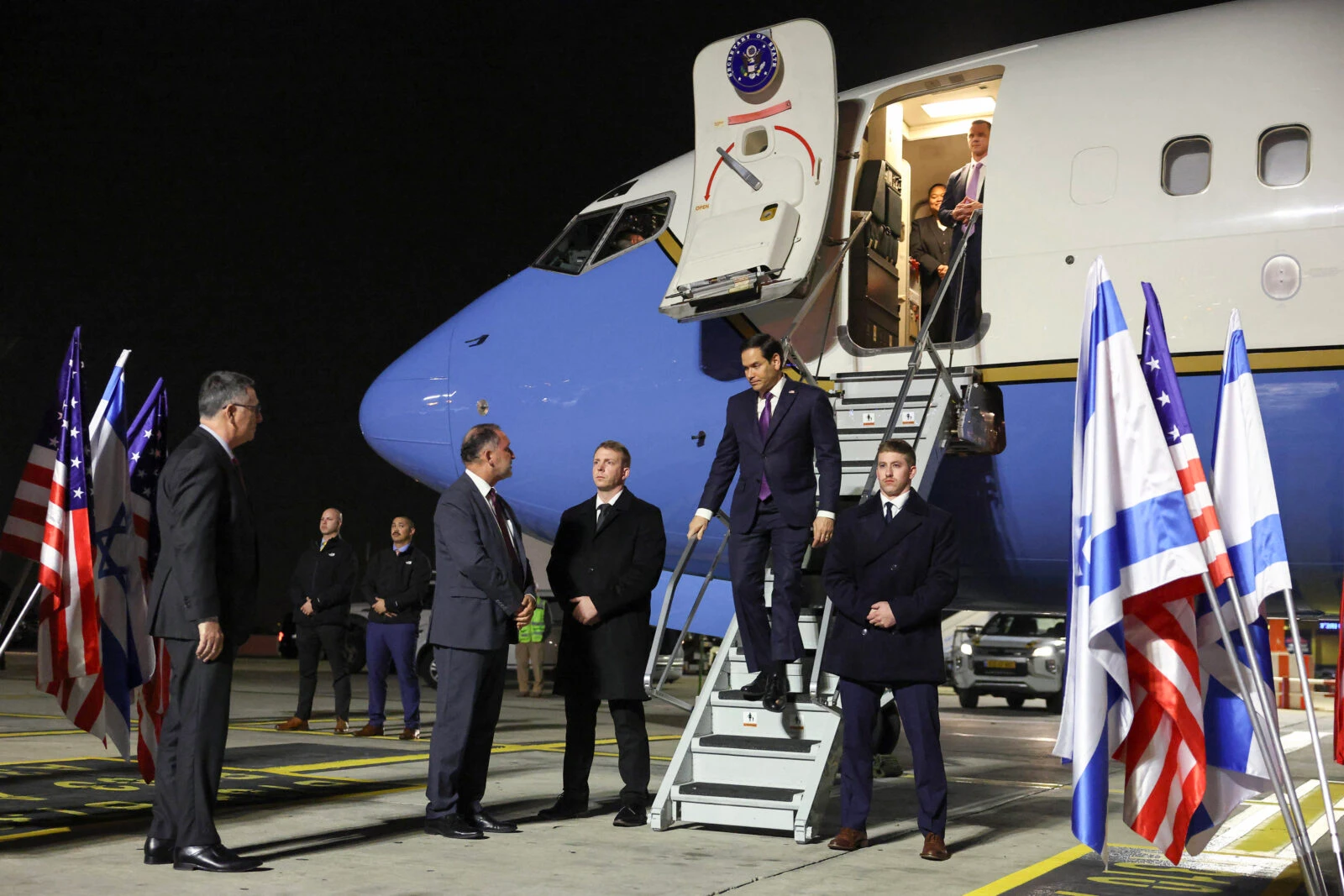
Trump’s Gaza proposal stirs tensions
Rubio’s trip follows a widely condemned proposal by U.S. President Donald Trump to relocate Palestinians from Gaza to neighboring countries and transform the strip into a tourism hub, branding it the “Riviera of the Middle East.”
The plan, first introduced in January, has been rejected by Arab nations and many international leaders, who argue it constitutes forced displacement.
Netanyahu has voiced support for Trump’s vision, but opposition remains strong. The second phase of the ceasefire, which is yet to be negotiated, is expected to include further hostage releases and discussions on long-term stability in Gaza.
Trump has warned of repercussions for neighboring Egypt and Jordan unless they accept displaced Palestinians from Gaza. Meanwhile, Egypt is reportedly leading an effort to propose an alternative solution focused on security training and local Palestinian governance.
“The president’s also been very bold about his view of what the future for Gaza should be, not the same tired ideas of the past, but something that’s bold and something that, frankly, took courage and vision… what cannot continue is the same cycle,” Rubio said referring to Trump’s plan for U.S. control of the Palestinian territory and to displace its population.
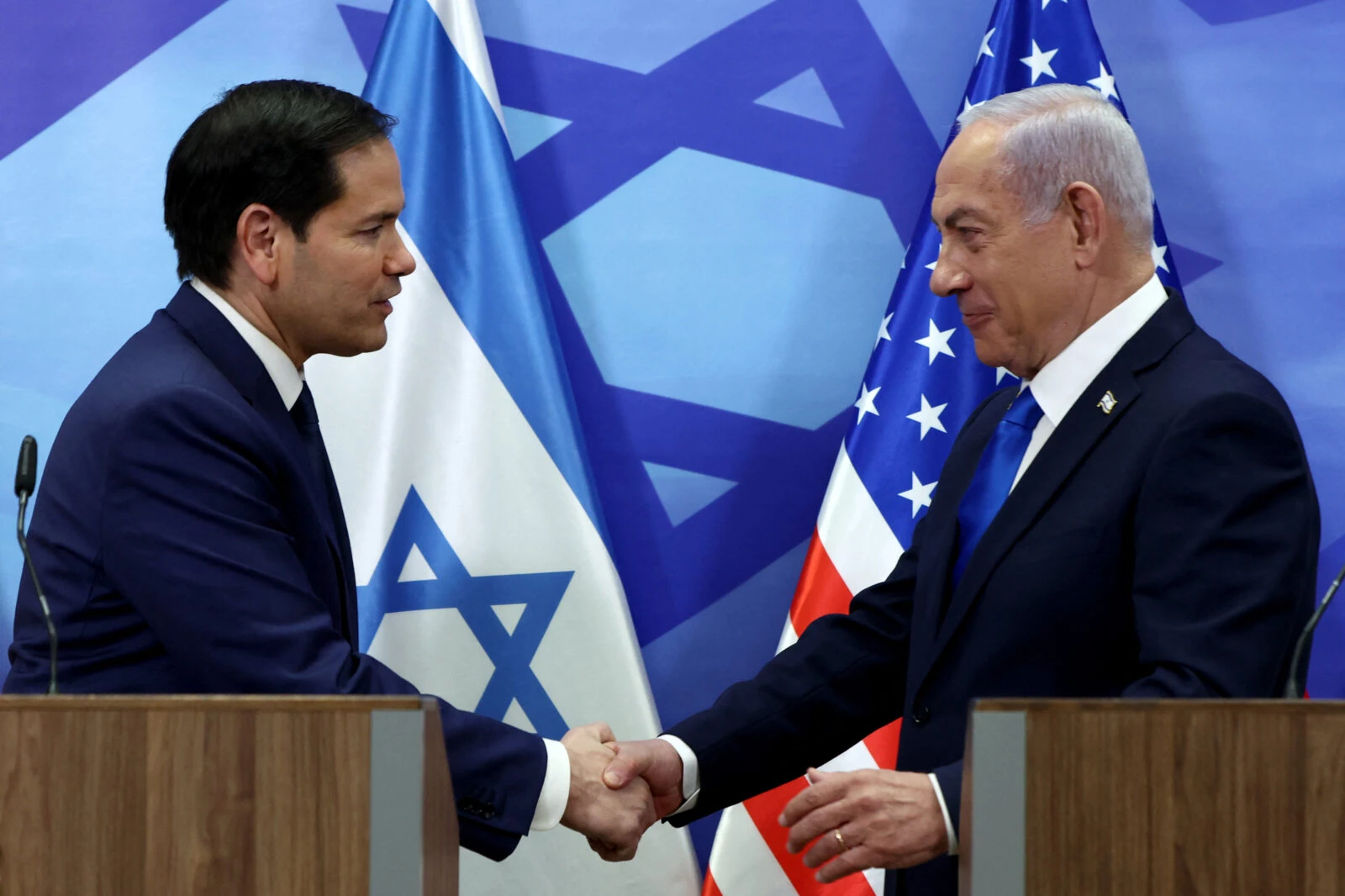
US military support to Israel
During Rubio’s visit, Israel confirmed the arrival of a shipment of US-made MK-84 bombs, lifting an export restriction imposed by the previous Biden administration.
The 2,000-pound unguided bombs had previously been withheld due to concerns about their impact in densely populated areas.
Overnight, Israel said it received a shipment of US-made bombs after the Biden administration had blocked the delivery of heavy ordnance.
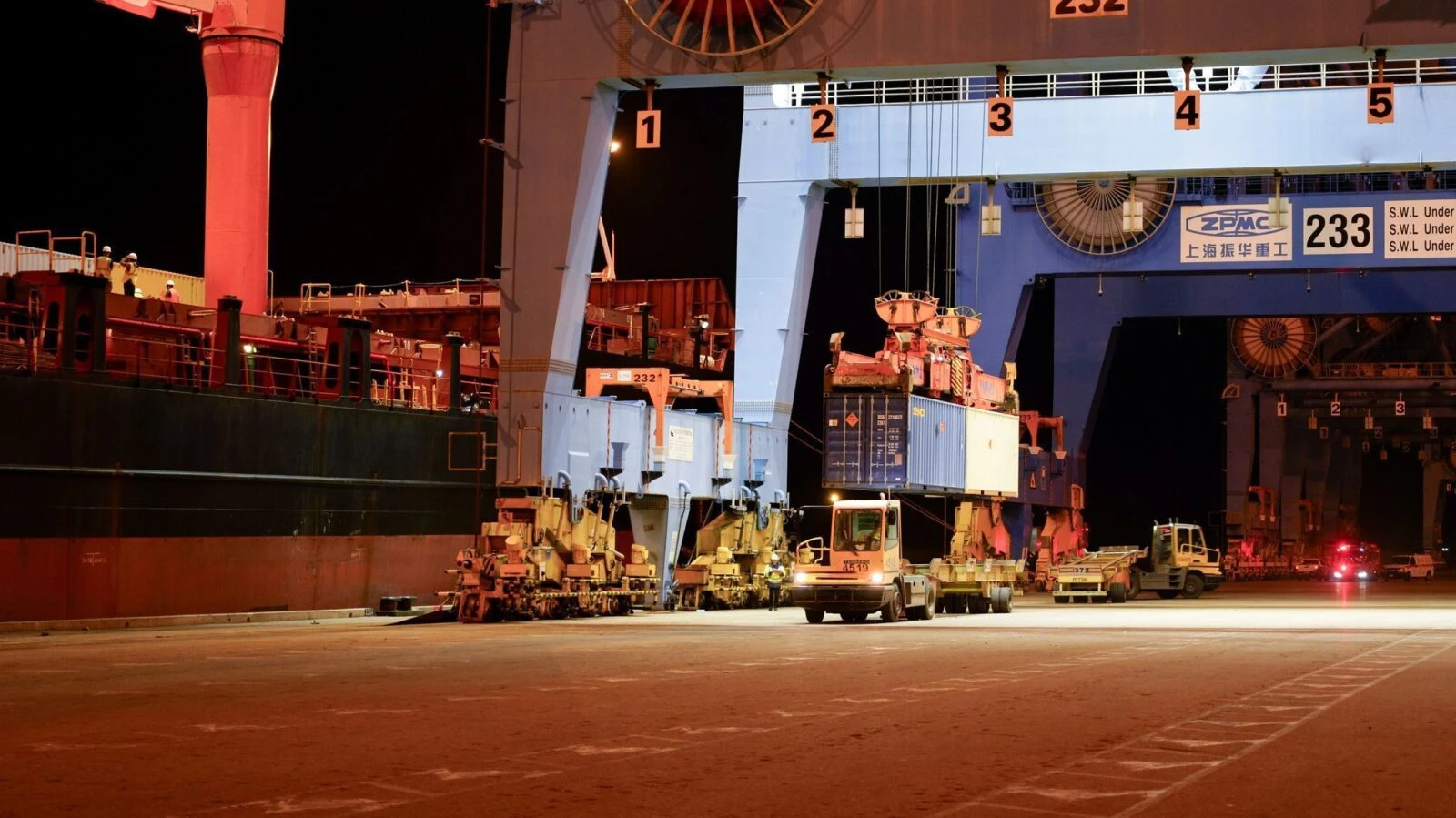
Rubio on Syria, Hezbollah and Hamas
At a joint press conference with Netanyahu, Rubio emphasized that the US is closely monitoring Syria following the fall of President Bashar al-Assad in December.
“While the fall of Assad is certainly promising and important, Syria replacing one destabilizing force for another is not a positive development, and that is something that we will watch very carefully,” Rubio stated.
Rubio and Netanyahu also discussed Hezbollah’s role in Lebanon, with both leaders agreeing that the group should be disarmed.
“In the case of Lebanon, our goals are aligned in the same. A strong Lebanese state that can take on and disarm Hezbollah,” Rubio said.
Netanyahu added, “Hezbollah must be disarmed. And Israel would prefer that the Lebanese army do that job, but no one should doubt that Israel will do what it has to do to enforce the understandings of the ceasefire and defend our security.”
“Israel and America stand shoulder to shoulder in countering the threat of Iran,” he said. “We agreed that the ayatollahs must not have nuclear weapons and also agreed that Iran’s aggression in the region must be rolled back.”
“Behind every terrorist group, behind every act of violence, behind every destabilising activity, behind everything that threatens peace and stability for the millions of people that call this region home is Iran,” Rubio said.
“Hamas can not continue as a military or government force and as long as it stands as a force that can govern or administer or a force that can threaten by use of violence, peace becomes impossible,” Rubio added.
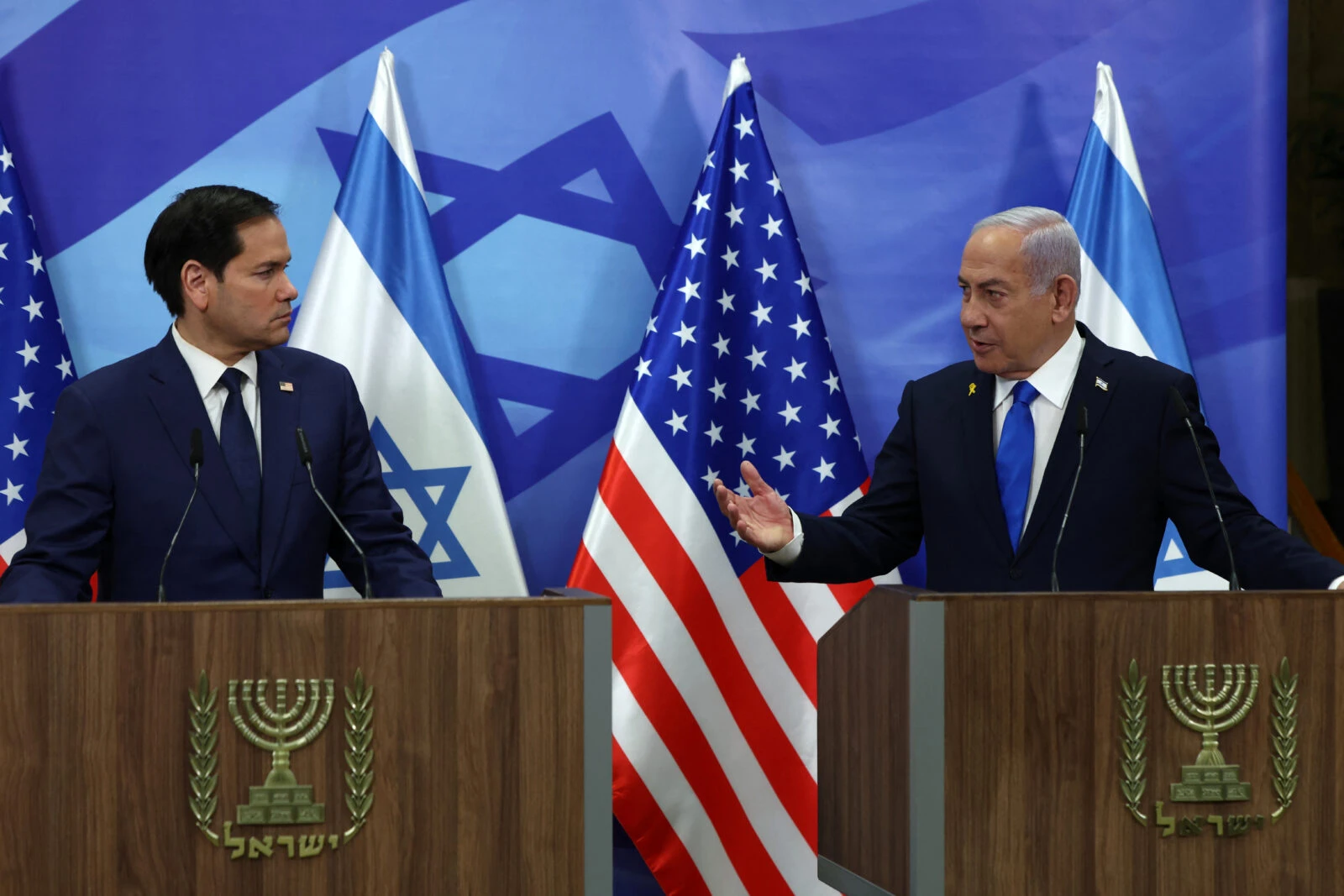
Brink of collapse: Ceasefire under pressure
The ceasefire that began on January 19 has come under significant strain. Israel had warned Hamas that it must release three living hostages by the weekend or face renewed military action.
The freed hostages—Israeli-American Sagui Dekel-Chen, Israeli-Russian Sasha Trupanov, and Israeli-Argentine Yair Horn—were returned to emotional family reunions. Hamas had presented them on stage flanked by masked fighters before their release.
Israel freed 369 Palestinian prisoners, most of whom were detained in Gaza during the war, though some were serving life sentences for attacks on Israelis.
Footage broadcast by Israeli media showed Palestinian prisoners wearing sweatshirts marked with a Star of David and the slogan: “We will not forget and we will not forgive.” They removed and burned them upon arrival in Gaza.
Since the ceasefire began, 19 Israeli hostages have been released in exchange for more than 1,000 Palestinian prisoners. Of the 251 individuals seized in Hamas’s October 7, 2023 attack on Israel, 70 remain in Gaza, including 35 the Israeli military believes are deceased.

Heightened tensions and next steps
Negotiations on a second phase of the truce, aimed at securing a more lasting end to the war, are expected to begin this week in Doha.
On Saturday, a former Israeli negotiator claimed Israel had missed two opportunities last year to secure a truce and expedite hostage releases, an assertion denied by Netanyahu’s office.
Trump’s Gaza proposal has intensified regional tensions, as Arab states push back against plans for forced displacement. Egyptian President Abdel Fattah al-Sisi has emphasized that establishing a Palestinian state is the only viable path to lasting peace.
Meanwhile, Israeli Chief of Staff Herzi Halevi is set to travel to Washington on Sunday for meetings with senior US military officials, including the chairman of the Joint Chiefs of Staff and the Commander of US Central Command (CENTCOM), to discuss strategic and operational concerns.
On Sunday, Hamas reported an Israeli airstrike near Rafah that killed three police officers. Israel stated it had targeted “several armed individuals” in southern Gaza.
This marks at least the second Israeli airstrike in Gaza since the ceasefire began.
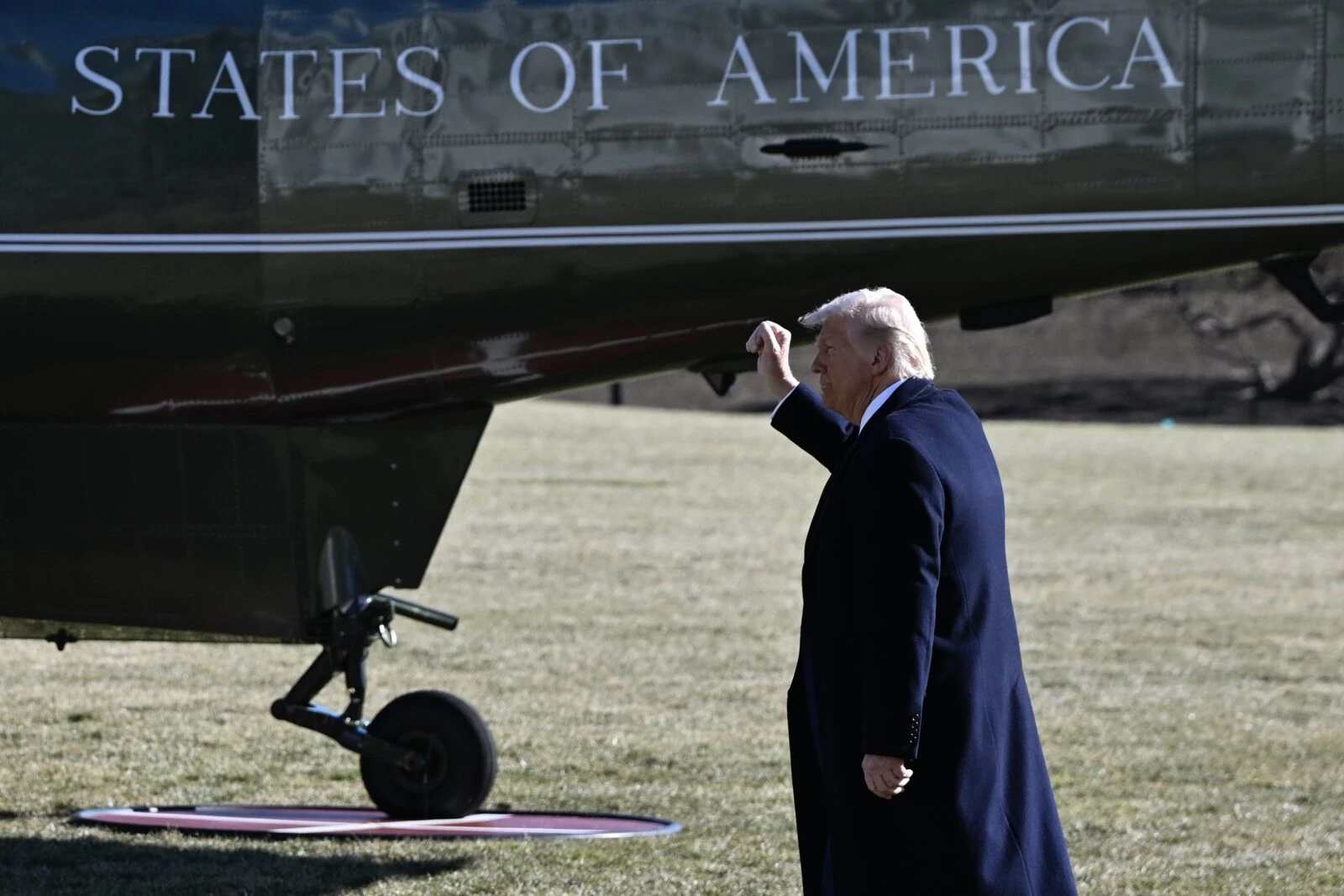
Rubio on Iran and regional stability
Addressing Iran’s influence in the region, Rubio stated, “There can never be a nuclear Iran, a nuclear Iran that could then hold itself immune from pressure and from action. That can never happen.”
Netanyahu echoed this sentiment, saying, “Over the last 16 months, Israel has dealt a mighty blow to Iran’s terror access under the strong leadership of President Trump and with your unflinching support, I have no doubt that we can and will finish the job.”
He said Israel had weakened the Iran-backed Hezbollah movement in southern Lebanon and had hit hundreds of targets in Syria to prevent a new Iranian-backed front opening up against Israel.
“Now, if any other force believes that Israel will permit other hostile forces to use Syria as a base of operations against us, they are gravely mistaken,” Netanyahu said.
“I want to assure everyone who’s now listening to us, President Trump and I are working in full cooperation and coordination between us,” Netanyahu added.



